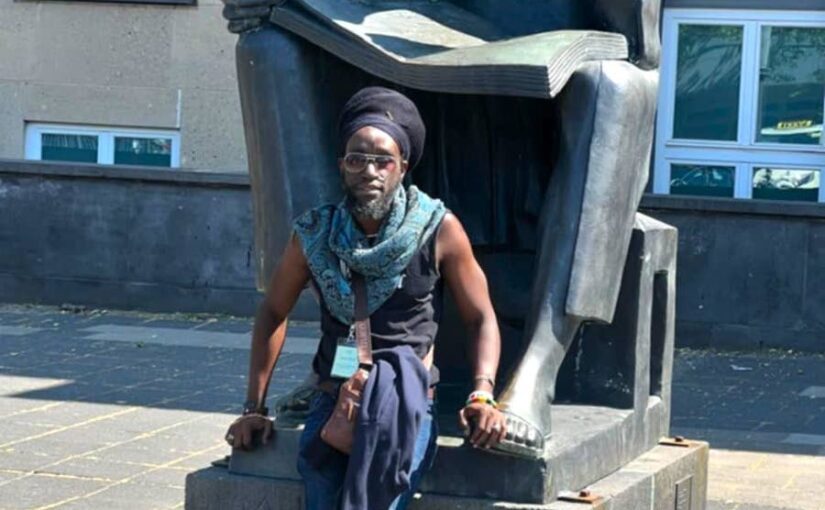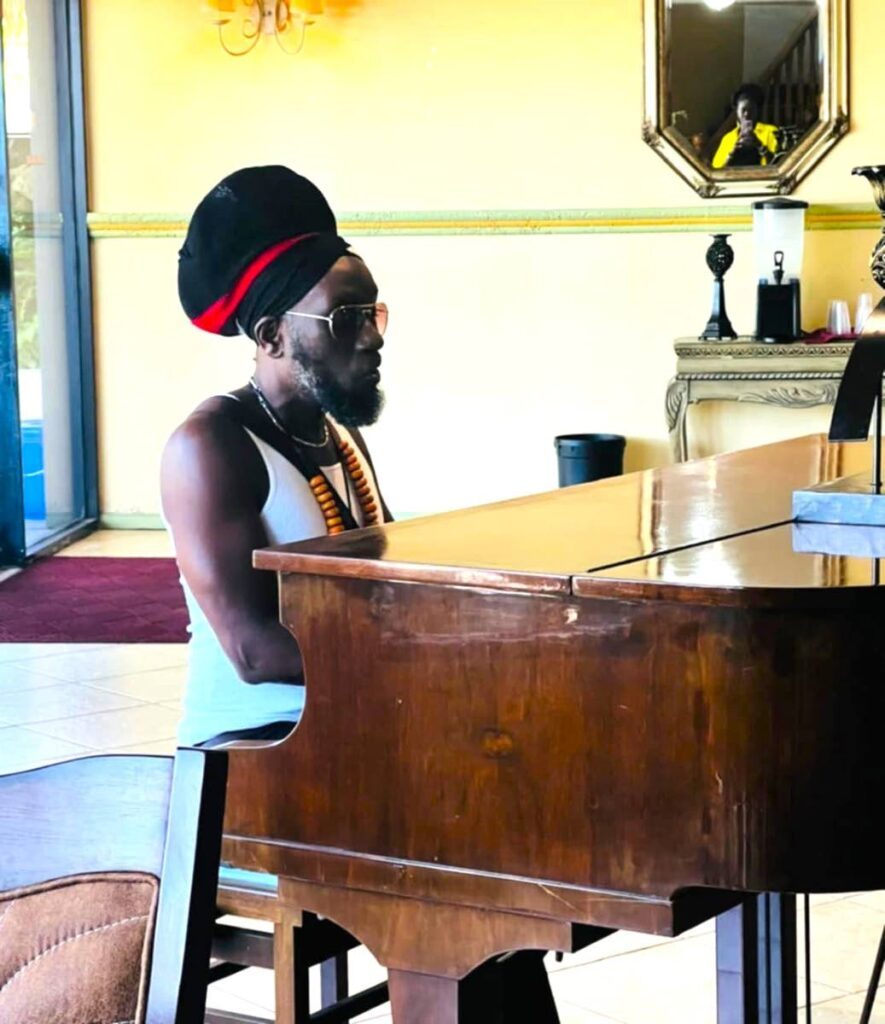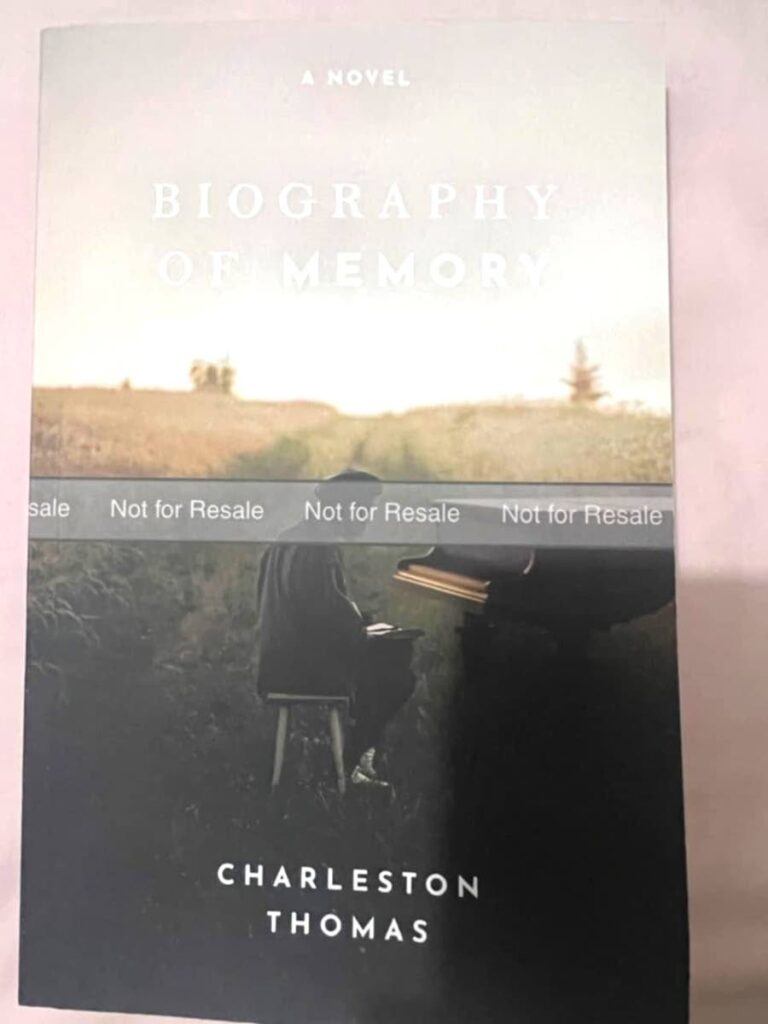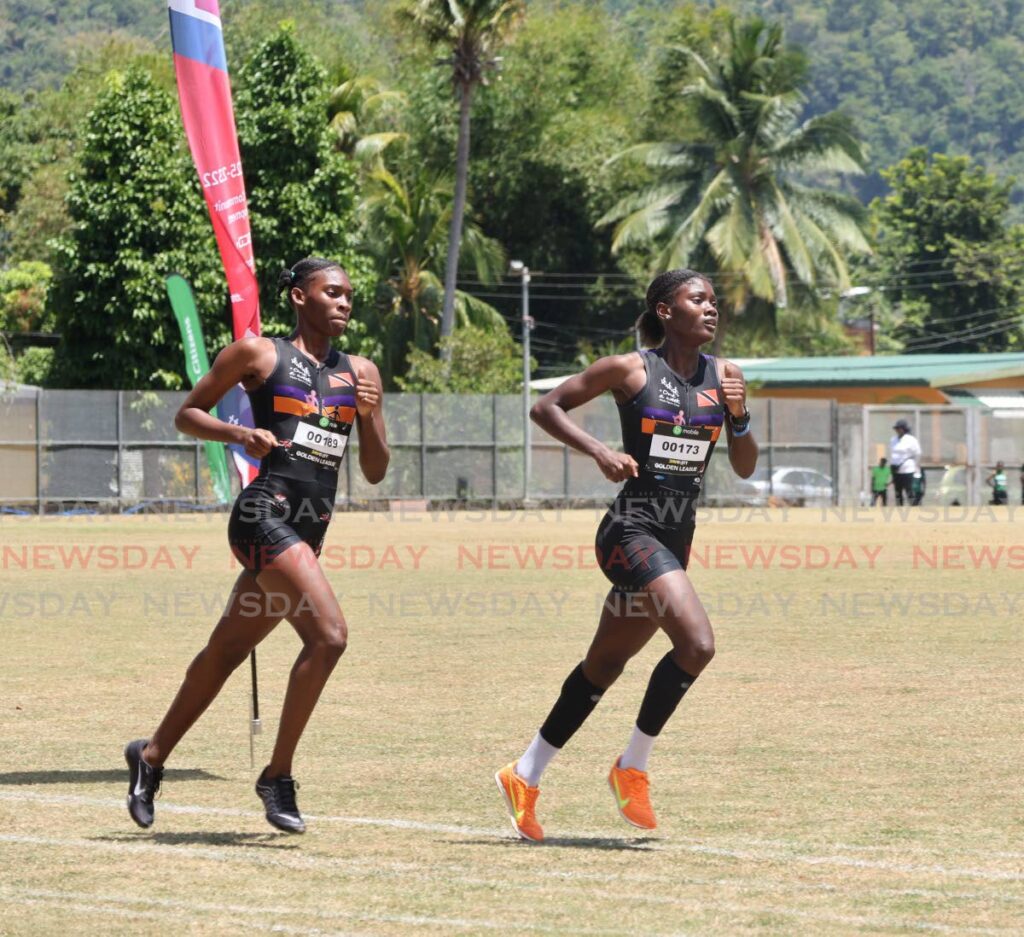Finding joy in creativity
Written by Janelle De Souza on December 9, 2024

It’s rare for an author to tell readers to ignore parts of a book if they wanted, but that is what Dr Charleston Thomas is advising for his first book, the novel titled A Biography of Memory.
Thomas, 47, is a student of language and literature, and is intrigued by the writing style of interior monologue in which the writer takes readers into the mind of the protagonist.
“I am somebody who lives in my head a lot. I’m the type of person who you’ll find by the river alone, meditating. The darkness of the night is my best friend. In fact, there is a poem in there called Night My Friend.”
Most of the novel takes place in the mind of an unnamed narrator. He is re-reading his PhD thesis, trying to decide whether or not to have it published in an academic journal.
The reading is continually interrupted by memories of his happy childhood growing up on an island, surrounded by an artistic family, as well as the pain and anger he feels about moving away from his family and attending university.
He thinks about the negative things he saw happening to others in his early years, especially about the “damage that has been done to the male gender” and the contributing factors.
He is also distracted by nature as he goes to different locations to read, and the distractions and thoughts make reading the thesis very laborious for him.
The reader is, therefore, reading the thesis with the character as well as experiencing his memories and emotions.
“He always had a knack for ideas but he was bitterly disappointed and disenchanted by the lies of the academic system, the way in which the university system mimics the colonial system, the way in which it removes you from yourself and, most importantly to the narrator, the way in which he is removed from the thing he feels he is on earth to do, which is to make music and to be in the arts.”
He eventually recalls that, years ago, he had begun writing some poetry. He reads them to soothe himself. And when he finishes the poems, he starts to recall music from local artists he admired. It inspires him and he hears new songs in his mind, music he always wanted to create.

Dr Charleston Thomas playing the piano. – Photo courtesy Dr Charleston Thomas.
Thomas said it is through the arts, where the rules of grammar can be broken, that the character figures out some of the problems he could not previously.
In the poem Institution, he works through the challenge of institutions – what they do, what they look and feel like – and better describe them. In another called The Anatomy of Pain, he describes pain as part of himself and works through his struggles and bitterness.
“Because he was born into music, the songs worked out the emotional content and layers that the grammatical language couldn’t do and that the words of the poems couldn’t do. The music, therefore, takes us into the realm of verbal gestures.”
Verbal gestures, he explained, were the sounds made in Negro Spirituals and that the people of TT make when speaking, sounds like uh huh and ah ha.
Verbal Gestures is also the title of the paper that will be published and made public in early 2025 in a book called Hospitable Linguistics, edited by Nick Saraclas et al.
The book emerged from three residencies in Germany and Morocco in which a group of linguists worked on the things, Thomas said, traditional linguists generally ignore. His contribution would include the impact of those verbal gestures on the creole language.
The character’s poems appear as a collection of poetry at the end of the book, and the new songs are available on Soundcloud, the link for which is also provided in the book.
Thomas said academic language is used in A Biography of Memory, mostly in the thesis, but it is balanced by humour as he makes fun of it. He said the book is very accessible, and if parts of the thesis are too challenging for any reader they should move on and instead feel what the character was feeling.
“That’s the point! This thing that he’s reading there is the bulls….! Life around and before the thesis is really where bliss is. Life in the arts. Life in poetry. Life in music. Life in community. Life in helping young men to lead a better life.
“Not this thing called post-colonial discourse where you have to bite off your tongue and all this kind of stupidness.”
Art imitating life

A Biography of Memory, a novel by Dr Charleston Thomas. – Photo courtesy Dr Charleston Thomas.
Much of A Biography of Memory mirrors Thomas’ life, experiences and scholarly interests.
A technical advisor for culture and antiquities in the Tobago House of Assembly’s Division of Tourism, Culture, Antiquities and Transportation, he was a humanities lecturer at UWI, UTT and the College of Science Technology and Applied Arts of TT (COSTAATT).
For his first degree, he majored in Spanish with a minor in French and Latin American studies, and his master’s degree was Spanish with a concentration in Hispanic literature at UWI.
He completed his PhD in cultural studies with a concentration on French, Spanish and English Caribbean literature, music and theatre at UWI in 2009. And several of his papers have been published in academic journals.
Of greater importance to being an academic, however, Thomas is a jazz and blues pianist and vocalist, poet and author who grew up as a Seventh Day Adventist. He also comes from a very artistic family who is well-known and involved in arts and culture in Tobago.
Similar to his character, Thomas believes universities have become corporatised and students are being churned out, as if on a conveyor belt, with no originality and without the skills to give good service to society.
Instead, he said society has a “fetish” with things like prestige schools and first-class honours.
“We have been missing the mark because the grade A doesn’t get the service done. It still has the old lady returning to an office 65 times for her cheque because that ‘first-class’ person didn’t go to work because they felt like going to the beach today or just to chill out by their partner.”
In his book, he also wanted to emphasise how people of the Caribbean, and especially Tobago, naturally express themselves, saying they are very expressive in both spoken and body language, and tell stories with more than just words.
He said local artist Valerie Belgrave’s photo memoir Art For The People, greatly influenced his book as it inspired him to do something different.
“I knew I never wanted to write a book in the way in which academics could write – these very boring, heavy things. And because of growing up in this very expressive community I wanted the book to be very dynamic, even if it’s just words you see.
“I wanted the rhythm to move people. Certain parts had to be hard to read in the way sometimes you struggle to understand another Caribbean accent or creole. I wanted it to be as real as possible in the context of our oral tradition.”
In addition, Thomas used the book to honour some of the people, like Dr Merle Hodge, who supported and helped him get where he is today. He said he used his memories of some of the conversations he had with these people in the book.
The post Finding joy in creativity appeared first on Trinidad and Tobago Newsday.




